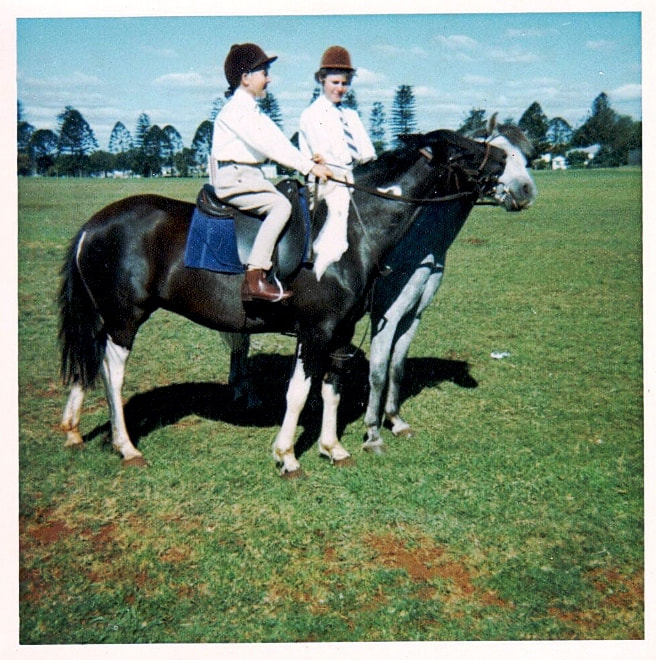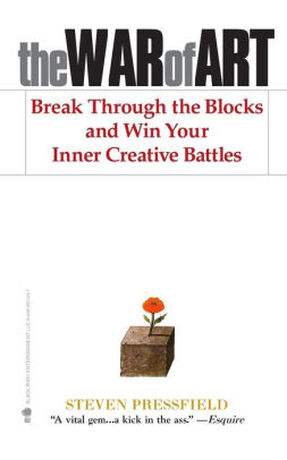A story about a story, by Joanne Verikios How much do you remember about your primary school days? I attended the same school for seven years and remember the names of most of my contemporaries and all my teachers. I still see the thorny, purple bougainvillea creeper under the headmaster's window; smell the cool, shady area underneath the school where we played games like "beam" (where you bounced a tennis ball off a beam); feel the heat rising from the asphalt quadrangle where we would assemble for parade, flag raising and marching into class to the tune of The Colonel Bogey; recall the scrubbed floor boards and the scarred wooden desks with holes for inkwells; relive our progression from slates and slate pencils (which we would sharpen by rubbing them on a kerb) to exercise books with lines that got narrower every year, to reflect the improvement of our fine motor skills, and real graphite pencils; and grimace with disgust at the crates of cute little, gold-topped bottles of government-supplied, compulsory sun-warmed milk that I never drank. A bright rather than "good" student, I usually came top of the class or second top. We had periodic exams or tests and the convention was that the child who "came top" was seated in the back right hand corner of the class room, with those ranking second, third, fourth and so on seated to their right. Everybody was placed according to their scholastic results, right up to the kids who didn't do as well and who were considered to need to be up the front of the classroom where they could get extra attention. My pole position usually lasted a day or so. Then I would fall from grace in some way - usually by talking when I was meant to be quiet or daydreaming while looking out the window - and I would be moved to a front desk for closer surveillance. Sometimes I would be "kept in" as well and during the ensuing detention would have to write "I must not talk in class" or "I must pay attention" or "I must not look out the window" as the case may have been, usually 100 times. I loved reading and English was my favourite subject; along with natural history with its projects like worm farms and ant farms, sprouting millet or carrot tops on damp cotton wool, watching things live and grow. I also liked taking interesting objects to school for the purpose of "morning talks". We lived less than a kilometre from the school and one day I carried a sizeable whale vertebra there and back; on another occasion it was a glass Japanese marker buoy, both of which were family treasures which had been washed up on the beach at Point Lookout, North Stradbroke Island and both of which were a great success with my classmates. Alright, it's time to get to the point. What this story is really about is something that happened which was to affect me for decades, without me really knowing it. The memory came back to me in response to a long period of looking for answers in the wrong places and finding only more questions. Mind you, I read some great books and listened to some amazing audio in the course of my quest, but the answer came, as the best answers usually do, from deep within, as a result of a lot of soul searching and contemplation. Suddenly, I knew why I could paint a painting, knit a jumper, sew a garment, create anything you like in the kitchen, renovate a house, design a garden, put together a business deal, produce a poem or a limerick to order, help other people solve problems - in short, create something out of nothing in any way I pleased, except one. That one thing was what I felt I wanted and needed to do most, which was to write. Of course I could write and write well, but story telling eluded me. To find out why, come with me back to primary school. We were regularly assigned homework and one day, when I was about ten years old, our homework was to write a composition entitled "The Old Bush Hut". So, come homework time, I sat down, got out my exercise book and pencil and I wrote this: "The Old Bush Hut. It stands in the middle of the bush, surrounded by loneliness and beauty. A vixen has raised three cubs in an old trunk in the corner. The iron tank is so rusty it makes a trellis for the rose bush climbing over it. The people who built it and lived here left long ago." That doesn't seem like much today, but it filled up about a page in my Grade 5 lined book. The images had come into my mind immediately: I could see it in my mind’s eye; smell the bush, the foxes and the roses in my mind’s nose; and hear the sounds of the leaves, trees and birds in my mind’s ear. All I had to do was describe them on paper, although it took me a while to form the letters neatly. I don't know whether that was the first time the Muse graced me with her presence, but I do know she was there that evening, in all her glory. When I had finished, I was happy with my work and with myself. Next day, we all handed in our exercise books to be marked. The protocol for returning marked work was for each student to be called to the teacher's desk at the front of the class to receive his or her exercise book and some brief feedback. The time came and the teacher called my name. When I reached her desk she pointed to my work and said to me, "Where did you copy this from?" "I didn't copy it", I replied, "I wrote it". "I don't believe you", she said, "it's too good. I have given you 8 out of 10 for writing it out neatly but you should tell the truth". To this day I wish I could have thought of something compelling to say, something that would have proved my authorship and integrity; or at least that I was the conduit for a series of original images; but all I could manage was, "I did write it!" Unwavering in her judgement, the teacher dismissed me and called the next pupil. And that was that. I didn't mention it to her again, I didn't tell my parents, I didn't tell my brother or sister, I didn't even tell my pony. I just put it behind me. The words "it's too good" were certainly some consolation, but the overall scene and its implications bothered me. I can't help thinking, now, that had I written something less lyrical, less inspired, less precocious; maybe something like: "The Old Bush Hut. There is an old hut in the middle of the bush. It is built of wood. Foxes live in a tin trunk in the corner. There is a rose bush growing on the tank stand. No one lives in it any more", I probably would have scored a nine out of ten with no questions asked! Anyway, I forgave the teacher, “forgot” about The Old Bush Hut and life went on. I thought I had moved on too, but deep down, the memory of that unexpected questioning of my integrity, by someone I liked and trusted, stayed with me. The injury was perhaps a little bit like a coin scratch on a shiny new car. You are bewildered, when you first notice it, by the senseless vandalism. You ask yourself questions. Why? Envy? Malice? Random mindlessness? At first it's all you can see. In spite of your disappointment, however, you soon rationalise it into proportion. After all, it doesn't affect the mechanics or performance, it's perhaps less obvious with every wash and polish, it appears less significant as more wear and tear accumulates around and over it; but it's still there because you know where to look. And noticing it now and then makes you wince, inside, just a little bit. Maybe you should have put in an insurance claim after all!
In his inspiring book called "The War of Art - Break Through The Blocks And Win Your Inner Creative Battles", Stephen Pressfield cites the following. "Rule of Thumb: The more important a call or action is to our soul's evolution, My story has a moral. We are all teachers. Choose carefully the seeds you plant in the mind of a child.
Dianne
29/1/2018 08:22:31 am
how true! ️absolutely! I like to think most teachers would understand children's emotional vulnerabilities- it takes yeArs to learn to speak up to be heard, certainly not many young people can and words hurt! Happened to me at a young age but not so much from a teacher, another adult. When I had mustered the courage to do a certain task only to be cut down by a person's humorous joke (to him). 29/1/2018 11:31:27 am
Hi Dianne, sorry to hear it happened to you too and I hope you have managed to put it behind you, move on, thrive and prosper! 29/1/2018 11:29:25 am
Hi Shirley, thanks for your support. You're right, words are amazingly powerful! 20/2/2018 10:53:23 pm
This is why parents tend to be over-protective with their child. Teachers are considered as “second parent” of their students. They should be careful with their words and deeds because it will surely affect the children. No matter how matured or how old we may be, our past experiences can manifest today. The bad things that happened to us will have a negative effect on our lives. I hope you were able to get over with what your teacher did. I’m hoping that you’ll succeed more in your career! 21/2/2018 09:25:36 pm
Hello Best Essay Writers Comments are closed.
|
From a very early age I have been able to tune in to what horses and ponies were thinking and what they were likely to do next.
Archives
September 2020
Categories
All
|





 RSS Feed
RSS Feed